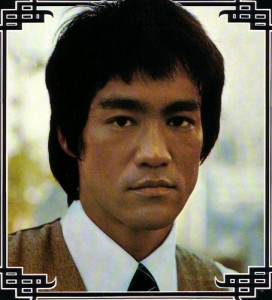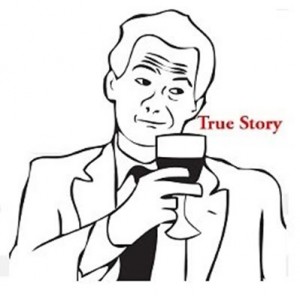Culturally some (mostly young) companies are starting to ‘get there’ in terms of cultural and philosophical construction as they make the effort to cater for requirements common to both GenX and Y, and as the ageing of baby-boomers highlights the ‘changing-of-the-guard’ that needs to happen.
Here’s a quick preview of what your company will be capable of should you be able to embrace these discussed philosophical underpinnings…
🙂
For bigger companies looking to change tact or for smaller companies looking to grow appropriately, hiring the right kind of people AND setting up the right conditions which are five years ahead of the present is vital.
Five years ahead in terms of speed/pace
Five years ahead in terms of what people desire
Five years ahead in terms of culture and environment
Five years ahead in terms of employee-company relationship
The best piece of advice straight up in that regard is to find the average age of the employee of your company, minus five from that number and conduct in-depth interviews and follow-up communications with all the people whose age equals that number!
In the way of the great Bruce Lee, a company’s people need to be quite autonomous and trusted to operate in their own style, free to “absorb what is useful and reject what it useless”, to “add what is your own” will become critical, to “use no set way as the way”, maintaining expression and diligence as key tenets.
Hence, (and to regurgitate Master Lee’s wisdom a little further) eventually “the only limitation is that there are no limitations”. A happy middle ground combination of natural instinct and external control. Thus, a “continual growth process” of adaptable versatility. Go Brucey!
People nowadays are more aware of other cultures, aware of different ways of doing things, different ways of thinking – MULTIPLE ways of thinking and doing. As a result, when a company has a ‘one style’ or ‘one way’ or ‘one rule’ kind of form, ie any kind of set cultural “doctrine” (which as we know results in a set and rigid state of stagnation leading to archaic constructs like “gospel truth” or “the way we do things”) the younger generations, ie the ones most in touch with and ultimately responsible for leading the way in our world, will naturally want very little do with such a mis-matched, one-dimensional operation.
Disillusioned (or just generally disappointed) young people employed by dinosaur companies will simply quit not long after realisation, or will remain with the company as unproductive souls constantly on the lookout for something different.
The widespread and gently capricious repellent that most companies continually spray in the face of their younger members is not something that research can necessarily prove definitively with data, as it’s a generalised aversive stimulus that simply compels people to slowly but surely move to better companies, start their own, or just operate as cash rich freelancers whereby they can be effective in their work without requiring someone else’s permission to breathe.
I recently reviewed an article on how companies ‘navigate their way to their destination‘, and it used the analogy that likened a company to a ‘ship that sails the seas’, asserting that the company needs to be able to alter its direction and planning in order to handle the changing currents and storms in order to reach the goal point. However, the article centred around how flexible companies need to be!
I can’t help but think the analogy would be better if it moved away from thinking of a company as a contained unit at all. The problem in the analogy was that a “ship” is a fixed vessel, a rigid structure. And naturally the bigger the company the more a waste of time the analogy is – not sure if you’ve ever tried to chuck a U-turn in an ocean liner, it’s quite difficult to arrange in any situation let alone when conditions are volatile.
What is required for success nowadays is a complete change of concept away from anything encased, phallic, testosterone-dominated, or uni-directional in any way.

Why not borrow from Bruce and posit that company is water, its fabric is the ocean. The boat would be our world in its current state, with its rigid requirements that need to be met. And the weather or ‘conditions’ would be our greater reality, the forces acting upon our world that need to be monitored and which bring about changes and imperatives that effect on our world in its current state at any given time.
With the ‘company’ as the water, it would encompass as well as be an integral part of the weather/conditions (ie the world) flowing with the changes of the greater ecosystem, as the world achieved its aims. Revisit any dramatic ocean storm scene in a movie and ask yourself if the water seems as bothered as the boat is?
Water naturally lines up with the conditions around it and lets itself alter in each instance a forced is imposed on it.
This take on the analogy in my view represents more accurately how we need to think of what a company should be, and is more indicative of where we need to go right now in human collective development overall.
It is recognising that our current world should be the boat, the sinking vessel floating on the whims and workings of us and our organised yet flexible systems that is body of water within which it sits and follows suit. This analogy posits us as both the adjuster and effector of our greater reality. A much healthier and much more achievable people-world relationship this century.
Hence, with this fresh outlook on what a ‘company’ is, we have us and our efforts being the supportive (or destructive) ocean of creation, development, doing and effecting on the world that we steer in whatever direction it needs to head at any moment.
The approach which posits a company as a ship presents the company as a helpless and unchangeable vessel fixed in design, trying to force its way to some predetermined destination and triumph against storms that are all imposed externally and outside of our control or influence is surely an approach that is out of date.
We are now getting to be in charge of our own destiny, our own evolution, and the very foundation of our causality and fate – we are capable of harnessing the forces of nature, not fighting them.
As Bruce says, “If a water enters a bottle it becomes the bottle, if it enters a teapot it becomes the teapot. Become water my friend.”
So without waffling about the world, its obvious societal and demographic changes, its influences and unfolding machinations, here’s what we need to do, in any and all organised groups…

– Promote more females to leadership, greater than 50% of leaders need to be female
– Dilute and apportion out responsibility, putting the onus on the individual not the leader
– However, pass most judgement on the greater collective, not on the individual, individual leader, or team
– Know each individual’s values, and hold each person to their values in exchange for more flexible work conditions
– Reverse tradition by being more social and community-like AT WORK, and not socialising as much outside work hours
As such we have a more in-tune construction, a more eclectic, fluid, empowering and responsible force, and what the company produces -the results of its goals, our goals, our world and all its achievements- becomes the ship. A ship that we, the water, can control.
It’s becoming far less important what a company does and where.
It’s becoming vital to have the right people, and to have the right people craving to join a company, as per the objective communications amongst people’s personal networks. Then for those joiners to truly enjoying being there, and maintaining this long-term by applying tactics such as the mean-minus-five method mentioned in paragraph four above.
Moreover, for the company to be the right kind of productive is the perfect storm to effect the right change.
With the company as a balanced, up-to-date progressive and multicultural community in its own right. A versatile, transformational force of nature that “does the right things” to bring balance to its ‘ecosystem’, not just a reactive, relatively helpless unit obsessed with forcing issues and all in all “doing things right” all the time.
Shareholders are, above all else, a bunch of clever people who want money. Long-term. They should not be at any stage a short-term controller of what is done. That should be down to each and every employee of the company and ultimately no one else.
The placing of power into a detached few these days can only be called pediocide. Also known as ‘shooting one’s self in the foot’.
The more cognisant people in ‘the west’ become of the massive number of educated, qualified and naturally strategic individuals coming from eastern, more ‘collectivist’ cultures the greater the ability will develop to create work cultures which are more communal, and which bear aims and achievements that people are more willing to sign up to.
Work cultures which also represent the vision of the company itself (which so many self-centred Westerners have little clue about), as the company becomes an actual interconnected group with more unity of purpose.
The more we heed the learnings of the west about individual expression and the advantages of malleability and flexibility (including the concept of the ‘special exception’ which the East often immaturely ignores), the more we’ll see workplace atmospheres evolve their own culture separate from that of state, even so far as to be designed to make people feel appreciated as individuals, and at the same time feel encouraged to interact more frequently, meaningfully, and productively within the community in which they spend the majority of their time.
This is not to say we should all hug trees in the office, grow dreds, live on a staple diet of goji berries, and make Inappropriate Yoga Guy our next CEO. But let me just say that you will know when a company has become the necessary human ocean when the mean collective attitudes, strivings, and agreed performance metrics of the people in the company become the company’s driving force itself, which will even go so far as to control the direction in which the company itself moves and when at any point in time.
There’s nothing quicker, more effective, and able to approve consensus than a unified, trusted collective consciousness.
Almost any of the analogies Bruce Lee learned during his life are worth us considering when pondering the philosophical underlay on top of which the successful company of the future is established.
Purposive groups should be not “east” or “west”, but more “earthling”.
Not “collective” or “individual” but “collective individual”.
Not so much “body” more “ecosystem”.
As water. Not container.

“Man the living creature, the creating individual, is always more important that any established style or system” – Bruce Lee











{ 1 comment }
i love your blog, i have it in my rss reader and always like new things coming up from it.